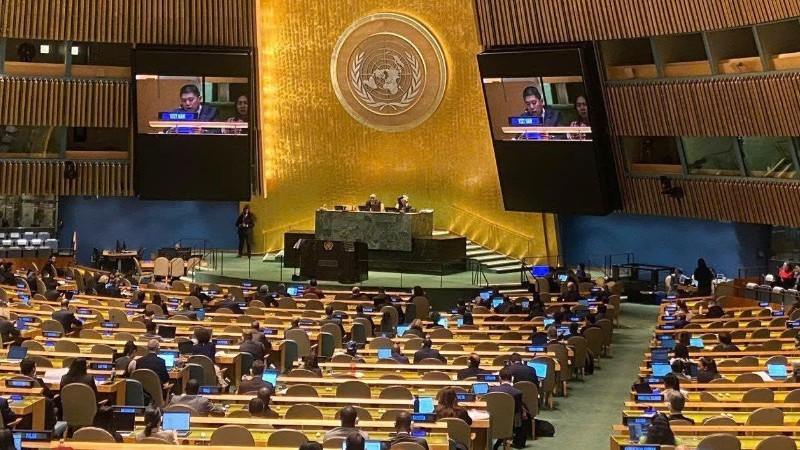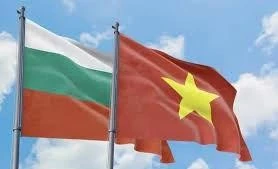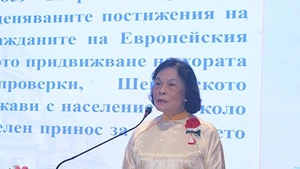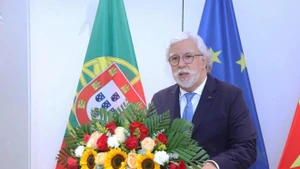The United Nations Convention against Cybercrime, known as the Ha Noi Convention, is a vivid demonstration of Viet Nam’s commitment to join hands with the international community in the fight against increasingly sophisticated and dangerous threats in cyberspace.
The Ha Noi Convention was initiated in 2020, arising from the urgent need to establish a comprehensive legal framework addressing global challenges such as non-traditional security, climate change, and sustainable development.
As a developing country with high international prestige, Viet Nam took the lead in realising this idea in forums such as the United Nations, APEC and ASEAN. The decisive leadership of the Vietnamese Party and State has made a significant contribution to advancing this process.
Viet Nam actively played a proactive role by organising numerous international workshops, gathering experts from United Nations Development Programme (UNDP), World Health Organisation (WHO), and United Nations Office on Drugs and Crime (UNODC) to shape the Convention’s content, focusing on areas like cybersecurity, environmental protection, and poverty reduction.
Viet Nam’s initiatives, such as support mechanisms for less developed countries and integrating climate change issues, received strong backing from the international community, helping to form a global legal document.
The Ha Noi Convention is the United Nations' first legal instrument on criminal justice in over 20 years, focusing on the prevention, investigation, and prosecution of cross-border cybercrimes, ranging from online fraud to large-scale cyberattacks.
After nearly five years of discussions involving over 180 countries and dozens of international organisations, the Convention was adopted by the United Nations General Assembly on December 24, 2024 with broad consensus.
The Ha Noi Convention is the United Nations' first legal instrument on criminal justice in over 20 years, focusing on the prevention, investigation, and prosecution of cross-border cybercrimes, ranging from online fraud to large-scale cyberattacks.
The consensus among many member states demonstrates the Convention’s feasibility and wide influence. United Nations and various international organisations highly appreciate commitments to information sharing, technical support, and inter-agency coordination, opening the opportunity to replicate this model in other regions, thereby laying a solid foundation for promoting peace, stability, and shaping global cooperation in the 21st century.
For Viet Nam, the Convention is an important diplomatic achievement and a driver for comprehensive national development. This marks the first time a Viet Nam’s location is associated with a global multilateral treaty related to an issue of international concern.
The event is a significant milestone in Viet Nam’s history of multilateral diplomacy and 47 years of Viet Nam–United Nations partnership.
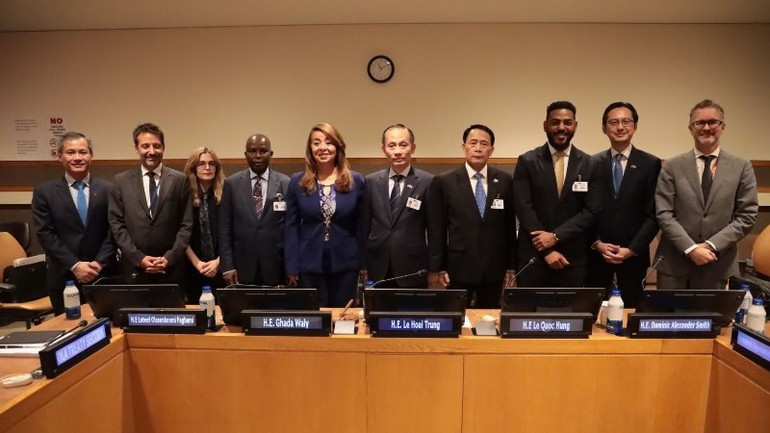
The Ha Noi Convention further affirms Viet Nam’s position as a developing country with vision and responsibility at the United Nations and international forums. It is also an essential step in the national digital transformation strategy, contributing to the implementation of Politburo's Resolution No. 57-NQ/TW on scientific, technological development and innovation.
In the context of global digital transformation, cybercrime is spreading rapidly, demanding decisive and coordinated actions from countries.
The 2024 Cybersecurity Ventures report states that global economic damage caused by cybercrime reached 9.5 trillion USD and is forecasted to rise to 10.5 trillion USD by 2025—far exceeding the impact of any natural disaster and becoming the greatest threat to the global economy.
The International Telecommunication Union (ITU) report points out that over 90% of small and medium-sized enterprises worldwide lack full defensive capabilities, making them easy targets for hackers, resulting in the loss of personal data, economic damage, and business disruption.
In Southeast Asia, a “hotspot” for cybercrime, the situation is increasingly complex, with Viet Nam, Indonesia, and Thailand among the most severely affected countries.
Kaspersky’s 2024 report recorded nearly 50 million malware attacks across the region. Meanwhile, the 2023 e-Conomy SEA report by Google, Temasek, and Bain highlighted that ASEAN’s digital economy exceeds 100 billion USD in scale, but risks from cybercrime threaten this growth and demand closer regional cooperation to protect digital infrastructure.
Specifically in Viet Nam, official statistics show that in 2024 there were over 4,000 cyberattack incidents targeting agencies, organisations, and businesses, with more than 46% of organisations having been attacked at least once; losses from online fraud are estimated in the tens of trillions VND.
The first half of 2025 saw increases both in number and sophistication of cyberattacks such as ransomware, online fraud, vulnerability exploitation, and targeted Advanced Persistent Threat (APT) campaigns. These figures highlight the urgency of a unified legal framework like the Ha Noi Convention.
Viet Nam’s participation in the Convention and hosting of the signing ceremony clearly demonstrate the determination to build a fair and healthy cyberspace alongside the United Nations, thus contributing to national security and social stability.
Viet Nam has one of the highest internet usage rates in the region, with over 78% of the population regularly online. Moreover, digital transformation is advancing vigorously across all aspects of life.
Additionally, Vietnamese Party and State remain steadfast in the principle of developing a free but safe internet, ensuring citizens’ right to access information in accordance with international commitments.
Viet Nam’s participation in the Convention and hosting of the signing ceremony clearly demonstrate the determination to build a fair and healthy cyberspace alongside the United Nations, thus contributing to national security and social stability.
Respected organisations such as Interpol and UNODC also emphasise that the Convention is a historic step, filling legal gaps without infringing basic human rights.
UN Deputy Secretary-General and UNODC Executive Director Ghada Waly described the Convention as a launchpad in the fight against cybercrime. Countries need to seize this opportunity to build a safer digital future. She also commended Việt Nam’s efforts in preparing the signing ceremony and pledging UNODC’s continued support for countries in adopting and implementing the document.
In the fight against transnational cybercrime, international community cooperation is essential to pursuing a sustainable future for all nations. This event opens new cooperation opportunities, helping countries, including Viet Nam, access international support mechanisms for exchange, cooperation, and capacity building for law enforcement.
For businesses, especially those operating in the digital technology sector, it is an opportunity to connect with global partners, enhance competitiveness, and protect consumer interests. Through this meaningful event, Viet Nam continues to affirm its position as a reliable partner and an active, responsible member of the international community.
